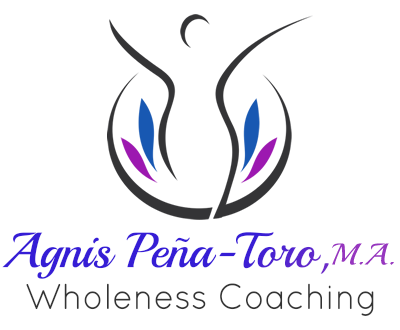
by Agnis Peña-Toro | Nov 21, 2022 | Diet Culture
Do you have mixed feelings about the Holidays? Is there a part of you excited about the foods, scents and flavors of the Holidays AND another part of you feeling terrified about overindulging and others’ comments about your body size and what you eat? Blame the Grinch’s diet culture for that!
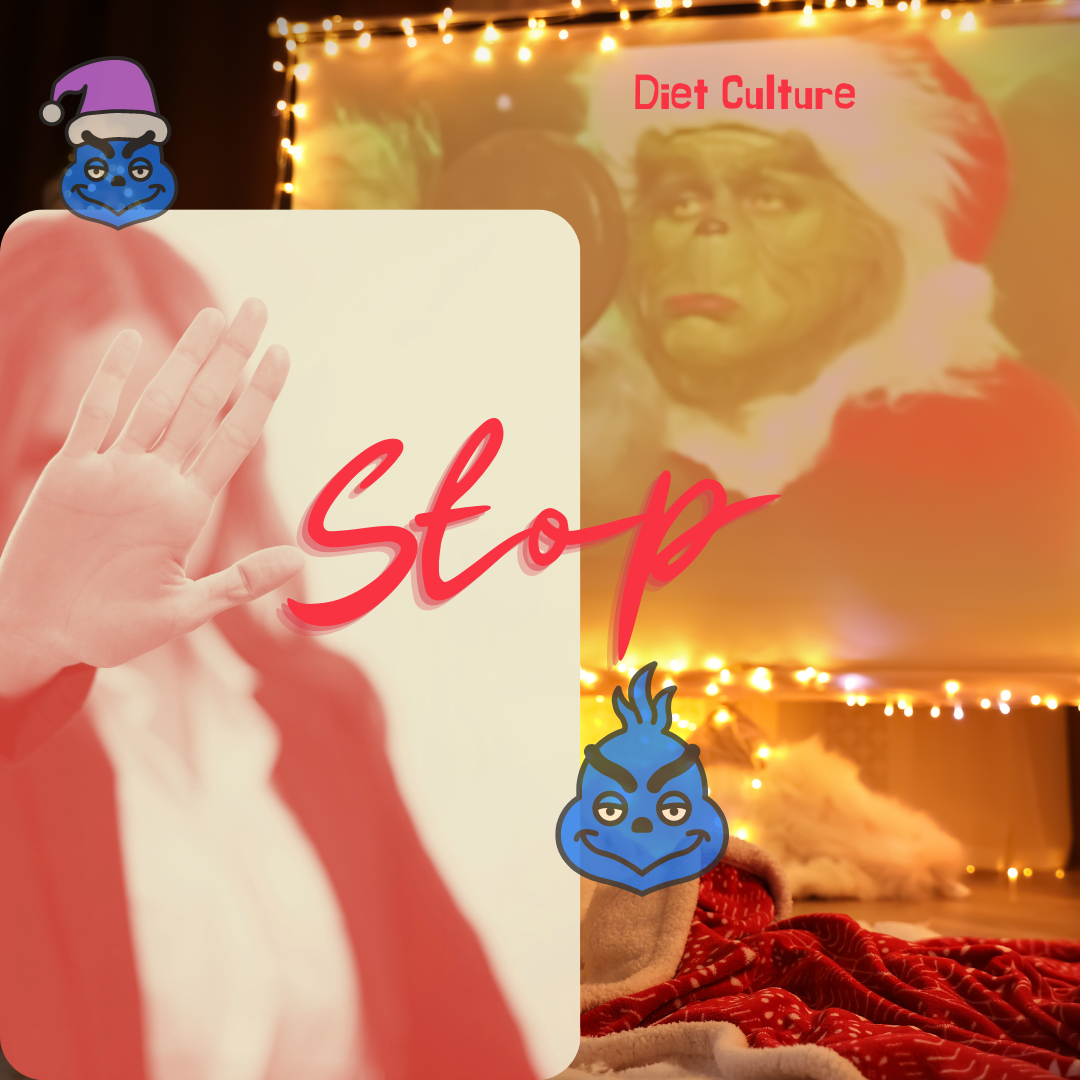
Well, let me tell you that you’re not alone on this. I was there too for so many years as well as millions of other women around the world (and men have been increasingly been affected too). Many of us have grown up with so many rigid and toxic beliefs around their body size and food, imposed by diet culture, which usually increase during the holidays.
In this post, I’ll talk about the importance of women becoming aware of how diet culture impacts their lives on a daily basis and even more during the holiday season. I’ll define the term diet culture. I’ll talk about how food is more than calories and macros but also an opportunity for social and cultural connection to create positive memories and emotional attachments.
I’ll then provide 5 tips to stop diet culture from stealing your joy out of the holidays. Finally, I’ll give you a holiday gift! Yes, I’ll include a holiday recipe by the amazing food blogger and chef, Olga Muñoz, who created a delicious holiday dish from her beloved Colombia (and also inspired by the rich flavors of Latin American Cuisine), to graciously share with all of you. Read on to start the holiday party where the diet culture Grinch isn’t invited.
What’s Diet Culture?
Diet culture is a with values, norms, regulations and rules for how, when, how much, and how often one should eat. It equals weight and size to health and gives more importance to weight than mental, spiritual, relational and overall well-being.
It moralizes individuals based on what they eat and how much they weigh. It demonizes certain foods ingraining in people’s heads that there are “bad” and “good” foods, “healthy” and “unhealthy” foods. Diet culture equals one’s worthiness to our food choices and weight.
Its impact in life is so pervasive, that expert in intuitive eating and nutritionist, Christy Harrison, calls diet culture Unfortunately, living a life heavily controlled by diet culture’s beliefs could lead to negative consequences including low self-esteem, anxiety, body shame, excessive restriction and binging on foods, and ultimately
Food as source of Human connection and More
Diet culture can create fear in people of some types of foods, amount and frequency to eat. And it can make individuals think of foods only in terms of calories, macros and nutrition.
However, since the beginning of the world, food has not only served a nutritional function and wasn’t always tied to fitting into a standard concept of beauty and physical appearance (disguised under health) dictated by diet culture. The goes beyond that. Food can actually bring us closer to experience a richer human experience and whole health in all the following ways:
Social
Food gatherings with friends, family members, co-workers and others can foster social relationships, community connections and social bonding among human beings. Friendships and other types of relationships can be deepened and strengthened by sharing meals and a dining table with others. Everybody needs to eat, and have company and a sense of belonging to thrive in life.
Emotional
As social connections grow through eating together with others, emotional connection and attachment can also increase in meaningful and positive ways. The experience of sharing a (or meals with friends and others) that one desires and savors with pleasure can evoke a diverse range of emotions including joy, happiness, excitement, pleasure, and content. Experiencing all of these emotions with others allows your nervous system to relax and become energized while your brain releases the neurotransmitter dopamine so you feel pleasure in a natural and healthy way.
Mental health
Experiencing all sorts of pleasant emotions when eating a yummy meal on your own, or with others, will definitely impact mental health in positive ways. Your mind will have more opportunities to relax and think more clearly when you provide the fuel your body needs without constant worry or guilt. Also, when you have a pleasurable, balanced and healthy relationship with food, there are more chances of having a more optimistic outlook as the freedom you feel eating can transfer to other areas of life. Your self-esteem and capacity for self-compassion can also increase as eating becomes an enjoyable experience.
Cultural
Honoring the important role of food in the rich history of traditions, rituals, celebrations, and culture will also enrich your life as a whole in so many different ways and areas in addition to the ones mentioned above.
Embracing the dishes your mother and grandmother cooked for you as a child is going back in time to honor your ancestors’ ingredients, flavors, textures and what was sacred and meaningful to them. It connects you to them and your own cultural history. In this way they never die. They’re present and connected to you (and your offspring) beyond time, and space and your identity is reaffirmed and celebrated.
5 tips to avoid Diet Culture Grinch Stealing your Joy out of the Holidays!
1. Bombard yourself with Food and Body Liberating Messages
In the same way you have been bombarded with diet culture’s negative messages about how much you should eat and look, it’s ideal that you start exposing yourself to tons of messages that actually blow your mind and encourage you to reclaim your birthright to be respected, appreciated and loved at your current weight and at every weight!

Listen to these messages when you do the laundry, cook, clean, walk, etc. There is a lot to unlearn and learn. Here are some suggestions:
Podcasts:
Maintenance Phase
The Fat Doctor Podcast
Savor Food and Body Podcast
It’s not About Food
Social media:
Diet Culture Film
Living_Vulnerably
BodyPositive_MON
BodyLove
Audiobooks:
The Body is Not an Apology
More Than a Body
2. Set Boundaries with Others
You have the birthright to tell family members, relatives and friends to stop making comments about what you eat. These are some examples of how to set boundaries with others:
– Please, I’d appreciate it if you don’t make comments about my food choices. I respect yours, please respect mine.
– I just want to have a good time, enjoy my family and be at peace. I know what I’m doing. I appreciate your concern. Thank you.
– I’m totally fine. If you ever want to know about my food journey, I can openly talk to you about it as long as you listen with respect, empathy, and an open mind. Let me know. Thanks so much.

You also have the birthright to ask family members, relatives and friends to stop making comments about your body size:
– Please, I’d appreciate it if you don’t make comments about my body, my size, my shape, etc. I respect yours, please respect mine.
– I just want to have a good time, enjoy my family and be at peace. I appreciate your concern. Thank you.
– I’m totally fine and starting to enjoy freedom in body and mind for the first time in my life. If you ever want to know about my body image journey.
– I can openly talk to you about it if you listen with respect, empathy, and an open mind. Let me know. Thanks so much.
Choose your own words and phrases. Speak from your heart while setting boundaries with others for self-respect and without apologies.
3. Eat for Nutrition, Hunger, Cultural Tradition and Pleasure
If you’re hungry for breakfast, eat breakfast. If you’re hungry for lunch, eat lunch. If you’re hungry for dinner, eat dinner. If you are hungry for snacks, eat them. Don’t skip regular meals planning for a holiday celebration as diet culture would like you to do.
When you stop eating or fast to make room in preparation for a holiday meal/celebration, most of the time you’ll end up eating more as your mind and body notice that you haven’t been fed enough during the day and will most likely make you eat continuously to compensate. Your body and mind will become concerned believing you’re starving so when you encounter and see food, you’ll probably overeat and feel stuffed and physically uncomfortable.

Also, it’s okay to eat when you’re not hungry just because there is a special holiday treat available that you like a lot and/or you have a special emocional/cultural/familial connection to. Eating in this way will bring so much satisfaction and pleasure and will bring you closer to others emotionally and socially. Also, when you find satisfaction in what you eat, most likely you won’t eat past your fullness limit causing physical pain. Trust your body!
4. Daily Gratitude Practice
Building a daily gratitude practice is one of the most empowering things that you can do for yourself, and your mental and physical health. There is plenty of research and studies showing how the brain lights up in brain scans when an individual thinks and feels in their mind and body about things, people and situations they feel grateful for.
Get a beautiful notebook or journal. Everyday write down 5-10 things you feel grateful for in your life right now. For example, I have functional legs, arms, and hands. My heart functions properly. I have hair that protects me from the sun and the cold. I have friends who care about me. I have a comfy bed. I exist and breathe every day.
Allow yourself to feel in your body, mind and heart the emotions that arise as you think about these 10 things. You could also sit while closing your eyes and think about these things and then let your body, heart and mind feel the emotions that come with it. Allowing yourself to feel the emotions in this practice is key for mental and physical health, as well as for the healing of your heart and body.
Then, read each one of the things that you feel grateful for in your list. Let your body, mind and heart savor the yummy emotions that are coming up. Close your eyes again and take a deep breath while placing a hand or two on your heart.
Now, I’m going to invite you to create a playlist of at least 10 songs that elicit gratitude in you. You can make the playlist in Spotify, Youtube or somewhere else you prefer. Listen to the songs and pay attention to the emotions arising, embrace them, enjoy them, breathe them in.
I hope this experience is yummy and delicious for you!
5. Self-Nourishment
In the same notebook you got for your daily gratitude list (see above), write down one thing you could do for nourishing your mind, heart, body and soul every day. Writing down what you want to give yourself for self-nourishment everyday (or a few days a week), makes a statement about how important you are to yourself, your mind, heart and body. Diet culture will never ask you to focus in your inner noursinghing experience but you can start slowly to change that now.
Here are some ideas:
– Guided Tender Self-compassion Break Meditation (less than 5 minutes) by Kristin Neff, Ph.D.that you could listen to when still in bed in the morning, during your lunch break or to fall asleep at night while listening to it.

-In your shower, take a pulsing showerhead and hover it on different parts of your body. Perhaps, start with your arms and pay attention to the sensations of the water running through your skin. What sensations do you notice?: flowing, soft, fluid, energized, cold, warm, streaming, calm.
Also pay attention to the emotions you’re starting to feel: joy, calmness, satisfaction, tranquility, interest, excitement, etc. as the water continues to run through your skin in different parts of your body.
While feeling the sensation of the water over your skin, tell yourself: “these are my tights, they belong to me”, “these are my arms, they belong to me”, “there are my hands, they do many things for me”, “these are my elbow, they work and help me everyday.” This exercise is adapted from the book Healing Trauma by Peter Levine, Ph.D where you can find more tools and ideas to connect to your body and help it self-regulate.
– Pamper yourself by taking a bubble or warm bath, giving yourself a hand and feet massage, having lunch with a close friend, dancing in your bedroom to your favorite music, saying yes to a dream of yours, reaching out for support, and saying to yourself self-compassionate words and phrases in the same way you’d do with a close friend who is going through a difficult situation or had a win situation in their life.
Look for little things in your life that could be sources of self-nourishment. You deserve it and need it for your well-being, whole health and joy during the Holidays and beyond!
Holiday Recipe
Now, it’s eating time! Here is the Holiday dish recipe created by Olga Muñoz from Cocina Republic: Crispy and Tender Pernil inspired by the rich flavors from Latin American cuisine.This is our gift to you wishing you a connected, compassionate relationship with your body, food, mind and soul during the Holidays!
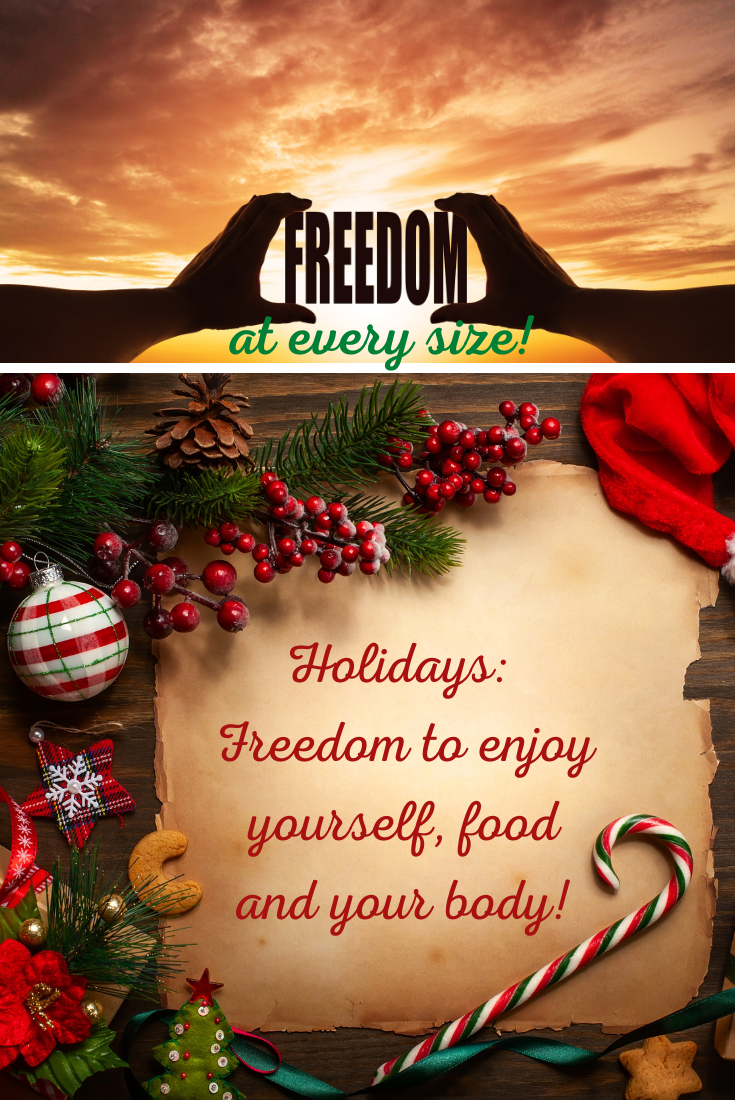
5 Tips to Stop Diet Culture from Stealing your Joy out of the Holidays!
Having a healthy relationship with your body and food includes giving yourself permission and freedom to enjoy the holidays with all of its flavors, scents and foods without apologies.
We’re talking here about a relationship with your body and food that is flexible, intuitive and compassionate that includes social and emotional connection to yourself, family members, partners, your children, your culture and traditions, friends and others.
Don’t let diet culture’s beliefs and non-sense body and food morality rules ruin the opportunity to enjoy yourself during the Holidays and reclaim space and respect for your body and yourself in your home, community and in the entire world at every size and without apologies. I’m sorry Diet Culture Grinch!
If you’d like to dive deep into transforming your relationship with food and your body so you can enjoy freedom, choice, flexibility, connectedness, whole health and pleasure, I’ll be happy to chat with you on a free discovery call. Book your call now.
Happy Holidays!
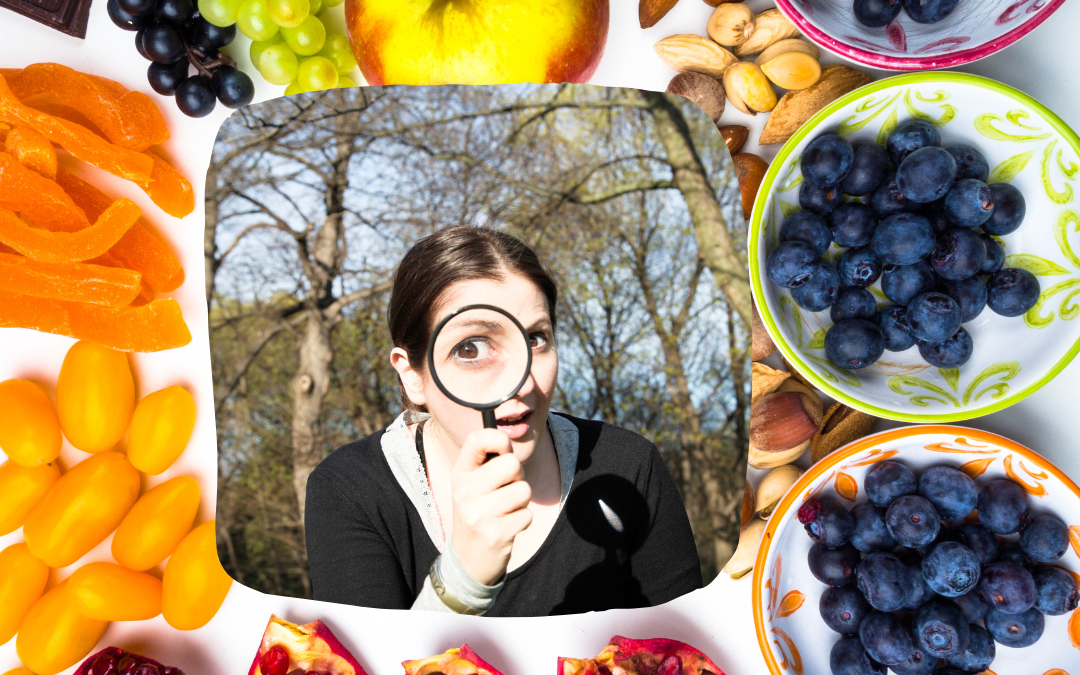
by Agnis Peña-Toro | Oct 22, 2022 | Excessive Healthy Eating, Orthorexia
What’s orthorexia? Let me ask you some questions before I define orthorexia for you. Did you ever imagine that trying to eat healthy ALL THE TIME could be a problem? Is it possible to care TOO much about the quality of the foods you eat?
If you believe that eating healthy ALL THE TIME is beneficial for your health and your overall well-being or if you worry that you’re NOT eating healthy all the time and that that should be your goal, please keep reading. I have some surprises for you!
In this post I’ll define the term orthorexia and provide some examples of ways in which orthorexia can negatively impact your life. I’ll also suggest several practical ways in which you can care about what you eat (without becoming obsessive) while also giving equal importance to other areas of your life.
What’s orthorexia?
Orthorexia is a term used to describe a way of eating in which individuals are so concerned about eating healthy foods and being healthy that they become obsessed with ONLY eating locally produced, organic, fresh, non-frozen, non-GMO, pesticides and hormones-free foods.
This is not to say that there is anything wrong with eating organic, non-gmo and non-processed foods. Not at all. It’s more about the positive moral meaning given to “clean” foods and bad moral meaning given to the rest of foods.
Judging oneself badly if one doesn’t follow the orthorexia rules, and feeling fear about hurting one’s own health if we eat processed foods could be more harmful than eating processed foods. The only ones who benefit from us giving moral meaning to foods are multi-millionaire corporations.

Orthorexia Rules
– Eat only clean, pure, fresh, organic foods
– Only eat non-gmo foods
– Always eat in the right way (clean and healthy foods)
– Cut down the numbers of foods you eat until eating only healthy ones
– There is no room for seldomly eating processed foods
– Eat better than others
– Feel better than others by eating “right” always
– Rigidity over flexibility
– Flexibility is associated to weakness or lack of willpower

Impact of Orthorexia
Emotional:
– Interferes with the quality of your life as you have to reject social events where “clean or healthy” foods won’t be served
– You may start to socially isolate as friends and family members may not share your “healthy and clean” rules
Physical:
– The fixation on eating in the “right” way can lead to neglecting important nutrients in your diet. For example, believing that eating “right” means not eating carbs at all or very little could lead to missing nutrients important for your hormonal balance (especially in women) and other physical issues and even mood related issues
– Limited consumption of a variety of foods impacts nutrition. Some extreme clean eaters eat less than 8 types of foods during long periods of time
– Excessive intentional weight loss that usually leads to regaining extra weight in the future and imbalance in the body
Psychological:
– Increased anxiety, stress and preoccupation around food
– Negligence of other areas of life such as free and non-detailed planned outings with friends or family members
– Increased financial burden as eating organic “clean and healthy” could be expensive and another source of worry
– It could lead to a full-blown eating disorders as stated in the DSM-5
– It may lead to increased black or white thinking, perfectionism and obsessive thoughts.

Overall quality of life:
– Less money, time and energy for creativity and play
– Less enjoyment of life as relaxation and peace of mind could be limited by focusing life on (the right) food
– Taking life more seriously
– Taking life for granted and forgetting that life is short. No one will get a medal at their deathbed for being perfect “clean eaters.”
If you see yourself in the descriptions of orthorexia in this post, you’re not the only one. You’re not alone on this at all. Capitalism, the diet culture billionaire industry as well as the objectification of women’s bodies have contributed to it. I myself was a “clean and healthy” eating evangelist years ago even though I’m a therapist and coach. No one escapes from it. So no shame.
Flexible and balanced ways to choose your foods and eat
– Remind yourself that food doesn’t only have a nutritional function but also social, emotional and even spiritual.
– Foods aren’t only needed to fulfill nutrition goals but also to get together and closer to your friends, family and community, which positively impacts your health.
– Find pleasure and satisfaction in food, which can also contribute to health.
– Your body, nervous system and immune system are wise and intelligent. Trust them. They know what to do with the food you eat clean or not.
– Start trusting and reconnecting to your body. Cultivate body trust
– Your immune system doesn’t only rely on the foods you eat to keep you healthy but also on the relaxation state of your nervous system. Make your nervous system happy and relaxed. That’s healthy too!

Orthorexia is far from living a healthy life. Nothing in excess is good even when one is eating “good” foods. Having white or black thinking around “healthy” food choices can lead to serious issues with physical health (limited nutrients, hormonal imbalances), mental health (anxiety, worry, eating disorders), emotional health (social isolation or conflicted social interactions) and also financially.
If being happy and healthy is the main priority, then adopting more flexible, balanced and pro-social beliefs as well as more joyful-based ways of thinking about food and eating could be the most healthy ingredients to have choice, freedom and authentic health in our lives. This is whole health
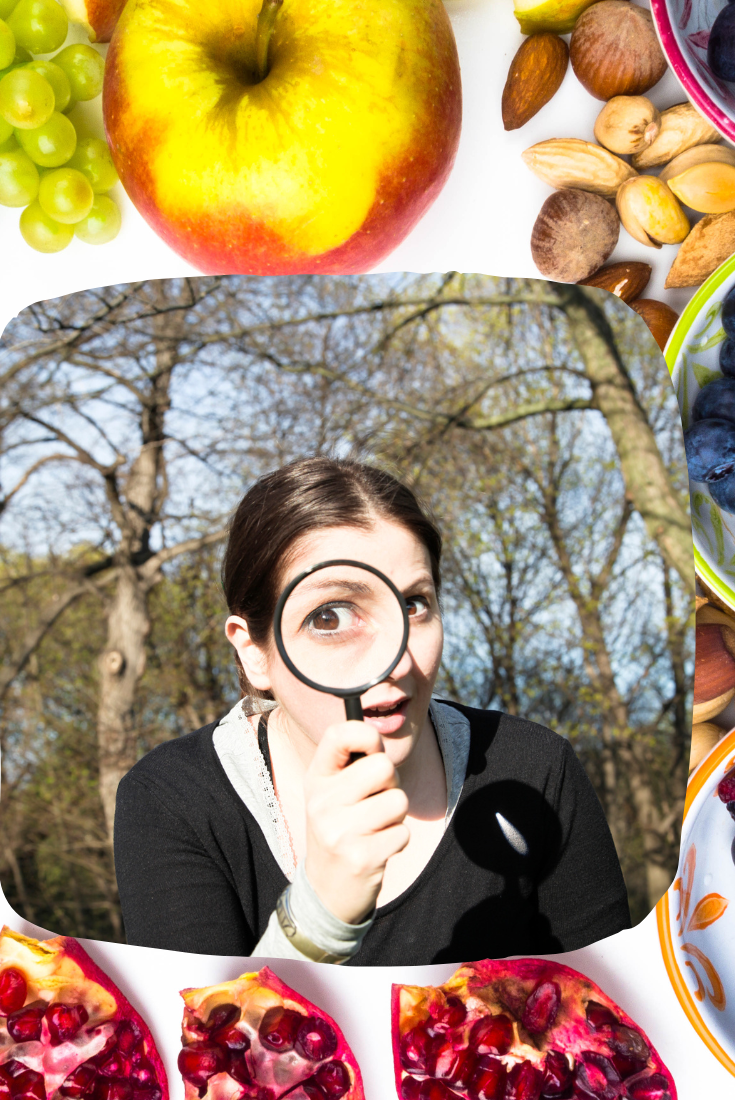
Could you be eating too healthy?: What’s orthorexia? www.agnispenatoro.com
If you’d like to dive deep into authentic whole health and want to improve your relationship with food and your body, I’ll be happy to chat with you on a free discovery call. Book your call now

by Agnis Peña-Toro | Sep 23, 2022 | Intuitive Eating
Are you sick and tired of diets and are ready to give it a try to Intuitive Eating?
I get it, sister! I’ve been there, done that and also got super tired of living a diet regimented life as if I were part of the army (minus the financial benefits) with so many rules, restrictions and limitations. Fortunately, I was able to escape from it as well as many of my clients! So, hang tight. Don’t despair. You can also escape from army diet culture and finally experience joy, freedom and health through Intuitive Eating!
What is Intuitive Eating?
First of all, let’s define what intuitive eating is. Intuitive eating is the way we were born to eat, paying attention to the physical signals of hunger and fullness that your body sends you since you were a little baby. Intuitive eating also includes finding satisfaction in the foods you eat in the same way babies know what they like and what they don’t. And of course, this satisfaction found in food also feels good emotionally. Just look at the happy face of a baby after she’s done eating.
What gets in the way of intuitive eating?
Unfortunately, this natural built-in mechanism and way of eating gets disrupted in the lives of many people, especially women, around the time they start school (or before and after) due mainly to body shaming messages and beliefs instilled in them from family, friends, school, culture and society at large. Evelyn Tribole (one of the creators of the intuitive eating framework and professional trainings), published an at depth definition of intuitive eating.
Benefits of Intuitive Eating
You must be asking what specifically is there for you if you adopt an intuitive eating lifestyle? For starters, taking the first steps towards eating intuitively could deeply reduce tons of stress, worry and frustration in your life. It could also improve your overall health as the more relaxed, confident and in peace you are when you eat, the better job your nervous system and digestive system can do to squeeze all of those wonderful nutrients out of the foods you eat.
In their book titled “Intuitive Eating” (4th edition), Evelyn Tribole and Elyse Resch, both registered dietitians and intuitive eating experts, state that intuitive eaters have lower: triglycerides, emotional eating, binge eating, blood pressure, body dissatisfaction; and higher: self-esteem, body appreciation and acceptance, pleasure from eating, HDL (good cholesterol), variety of foods eaten, well-being and optimism, and life satisfaction.
Intuitive eating, satisfaction and family life
Also, intuitive eating encourages you to welcome satisfaction back in your eating experience, which was most likely taken away by the diet Grinch who told you what, when and how much to eat for years in your life. Christy Harrison, renowned registered dietitian, podcaster and intuitive eating expert refers to diets as “the life thief”. How does that sit inside of you?
Imagine how your family, your kids, your partner and friends will also be impacted positively by seeing you enjoy food in a different way by using the principles of intuitive eating. They probably will notice the shift and even say, “wow! It feels good to be around you now. You’re not cranky anymore!” And that crankiness and limited joy imposed by diets can be totally reversed by going back to the roots of how you were meant to eat your entire life using intuitive eating! Your children will also continue to eat intuitively or start doing it again as you become their intuitive eating role model. You’ll save them from having an unhealthy relationship with food and their bodies in the long-run.
Are you convinced yet? At least enough to dive into the following 5 effective ways to start your Intuitive Eating Journey? Here we go:
1. Paving the way
Take a deep breath and answer these questions: Has any diet you’ve been on given you the permanent results you wanted? Do you still feel preoccupied about food and your weight all the time? Do you still dislike and reject your body and wish you had a different body so you can finally be happy? What’s the worst that can happen if you accept your body as it is right now? There aren’t good or bad answers. You just want to know where you are now and if you are ready for a change in your life that allows intuitive eating. Take time to reflect on these questions. No rush. Be honest with yourself with no judgment. Get a pretty journal and spend time reflecting and answering these questions. Go to a quiet and nice place and start writing or just meditating on these questions. You can stay in this step for as long as you need until you feel you’ve touched rock bottom with ineffective diets and are ready for a monumental rewarding change: embracing intuitive eating in your life!!
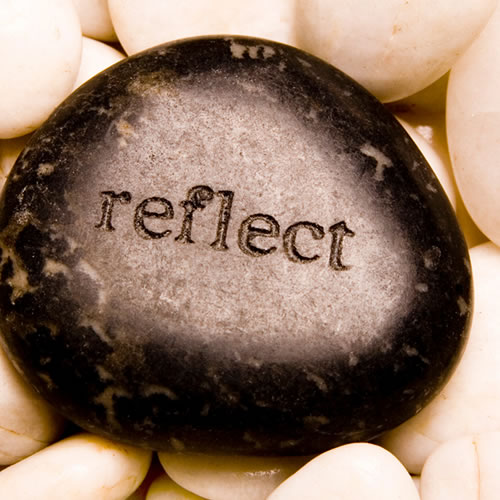
2. Say goodbye to Diets
This is probably one of the hardest things to do when you’ve been a chronic dieter for years and years. You may feel like I’m asking you to change your religion or something else that even if it doesn’t feel totally right, it still feels familiar. It’s totally normal to feel like that and even to feel scared. However, hopefully after spending enough time reflecting on what your life has been under the control of diets, as described in step 1 above, now you’re open to start rejecting all the unsolicited advice and rules from the diet world and people around you. It’s time to stop counting calories and macros as well as to exercise with the only purpose of burning calories. That’s all part of having a diet mentality. From now on, slowly start checking with yourself when making decisions about food instead of using information from outside your body.
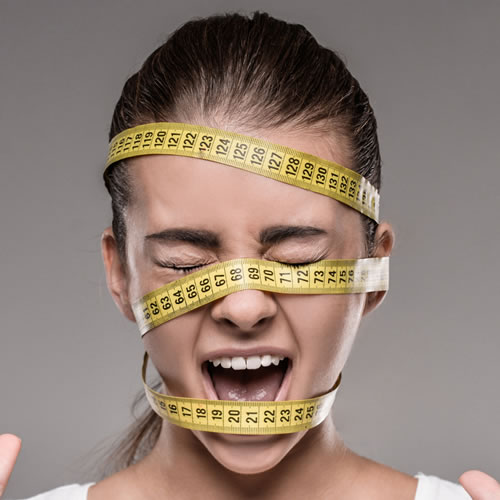
3. Start reconnecting to your body
The way to start checking in with yourself instead of listening to diet advice is through reconnecting to your body signals sent directly from your nervous system. Watch this video where I show you a simple way to start reconnecting to your body signals by noticing and feeling your own heartbeat and breathing. Watch this video to start re-establishing connection with your body.
4. Open the doors and welcome hunger
Welcome hunger into your life again and forever. Hunger isn’t something to be tricked, hidden, pushed away or feel ashamed of. It’s actually a survival signal sent by our bodies so we can give it what it needs. Would you challenge yourself from feeling and meeting the need to pee? I wouldn’t think so. Slowly, start paying attention to your body sensations such as lack of energy, stomach growling, light-headed feeling and headache. Ideally, we don’t want to wait until feeling intense body sensations like the ones just mentioned. For the following weeks, pay attention to other more subtle sensations that come before the most intense sensations like headaches or stomach growling. Perhaps it’s a light sensation of emptiness in your stomach or a light difficulty in concentration. It’s time to get to know your body better. Use the following Hunger scale infographic to help you reacquaint yourself with your hunger signals.
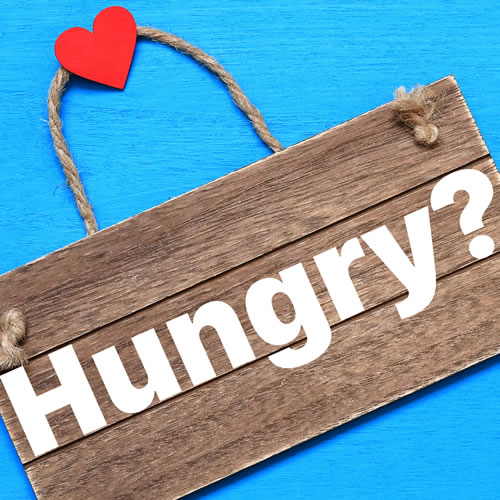
5. Rediscover Satisfaction
Believe it or not, finding pleasure and satisfaction in food leads to well-being and having a better relationship with food in general. People who tend to eat what satisfies them also tend to become fuller sooner and have no real need to continue to eat randomly and mindlessly. Take the first steps to allow yourself to eat forbidden foods that you’ve missed for a long time. You can start with only one forbidden food. Find a pleasant place where you won’t be distracted (put electronics away) and use all of your senses to eat that lasagna or donut tasting each bit of it as if this was the most glorious food ever. This may be a very difficult step to take for anyone who has had a diet mentality for a long time. No rush. You’ll know when you’re ready for this step. You can stay in this step for as long as you need to until you get bored of this food and then pick a different one.
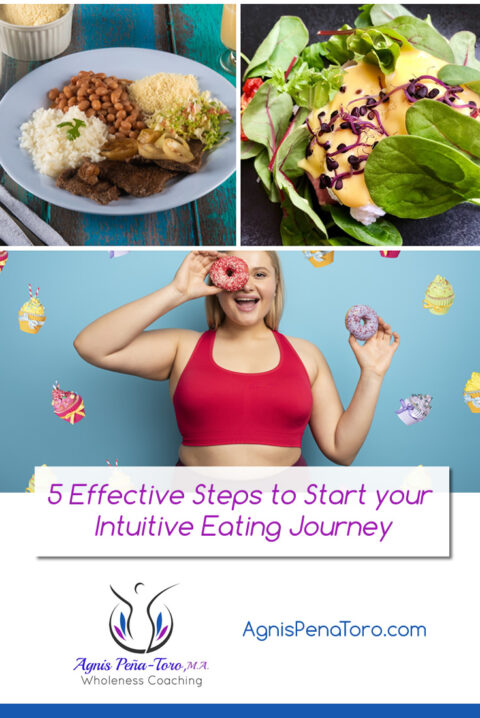
Embracing intuitive eating and making it an important part of your life could be the change or the last piece of the puzzle you need to start improving your relationship with your body and food. Remember to take time and have patience with yourself as you start implementing the 5 steps listed above. No need to rush through them. And you can totally do this as many others have done it before!
If you want support as you navigate your way into intuitive eating, I’m here to help you. I’ll be happy to extend a complimentary invitation to chat with me and further discuss where you’re on your intuitive eating journey. Please, book a free discovery call here.







